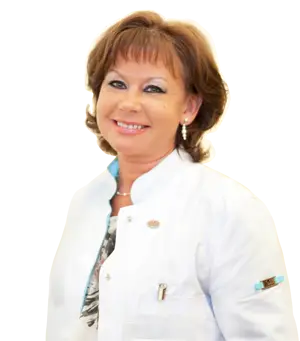Intensive care
If a person has undergone a complex operation, or his health has been severely damaged, it is required to resort to intensive therapy and resuscitation services. In this department, professional doctors, with the help of modern equipment, fight for the lives of patients, no matter how serious their condition is.
The entire reanimation and intensive care unit (ICU) of the clinic «Medicina» is one large system, which is divided into smaller clusters - wards. Each is equipped with specialized equipment capable of automatically supporting the life of patients. But, all the same, the signals from each apparatus are controlled by a central console.
The ICU works with patients who have problems with:
- hepatic and renal failure;
- cardiovascular system;
- disruption of the brain and it's supply with blood;
- the pulmonary system.
Also in the department of anesthesiology, resuscitation and intensive therapy, people who have problems with the entire spectrum of shock conditions are treated. Postoperative patients who require postoperative rehabilitation are also treated here.
Our clinic is equipped with the most innovative technical equipment. Thanks to this, we provide the most complete range of services in the intensive care unit:
- Metabolic control to exclude metabolic disorders;
- Relief of pain and the use of prolonged epidural blockade;
- Maintaining hemodynamics at a stable level;
- Artificial nutrition of the patient in cases when he is unable to do it on his own;
- Extracorporeal detoxification - blood purification;
- Therapy for acute cerebral insufficiency;
- Bringing back the acid-base, electrolytic, and fluid balance of the body.
High professionalism, experience, and qualifications allow the staff to prepare a person for surgery. Also, they can perform a full range of postoperative procedures to stabilize the patient's condition.
Each patient in the department is under the supervision of anesthesiologists-resuscitators 24/7. We constantly monitor the readings of the devices; also the doctor bypasses the wards. Every morning, a round of the attending physician is carried out, which determines the possibility of transferring the patient to an inpatient form of treatment.
How to visit friends and family in intensive care
In our medical center, you can visit the patient in the intensive care unit every day. In order not to undermine the patient's already poor health, certain visiting norms have been created. Check the information at the clinic reception or by phone. Under certain conditions, the doctor of the intensive care unit has the right to prohibit visits in individual cases.
Be very careful about your illnesses. If there is even a hint of a cold, it is best to refrain from visiting. All the same, you will be forbidden to see the patient. Additionally, you will need to wear shoe covers, a bathrobe, and a mask. Wash your hands thoroughly before entering the room. The absence of infection from the street is one of the rules for a successful patient's recovery.
When a patient regains consciousness from anesthesia or prolonged unconsciousness, he may show a drowsy, weakened state. During this time, the staff will make every effort to make the patient feel maximum comfort and care.
During the visit, you can see that several devices are connected to the patient at once. This is a must. Don't be afraid of this. If necessary, the attendants will explain which device is doing and for what exactly it is connected to the patient.
Rehabilitation after intensive care
Each person has a different rehabilitation period. It depends on many factors. As soon as the patient's condition has stabilized and has reached positive dynamics, the doctor can transfer him to a hospital. At the first time after discharge from the ICU, it is important to monitor such symptoms as:
- Loss of appetite and/or weight;
- Increased weakness;
- Sleep problems;
- Excessive fatigue;
- Forgetfulness;
- Depression.
If any of these symptoms appear and do not go away for a long time. Urgently contact our center to check the patient's condition.
For a full medical consultation in the center of anesthesiology, resuscitation and intensive care of our clinic, call in Moscow +7 (495) 775-73-60.
Doctors







